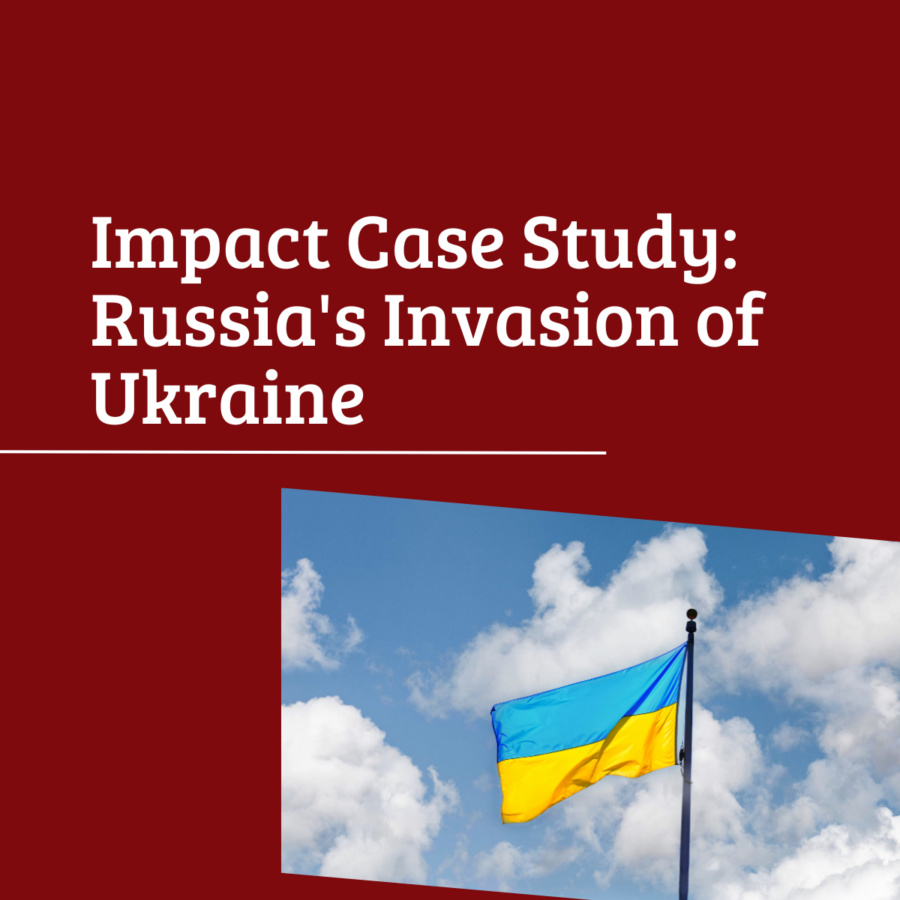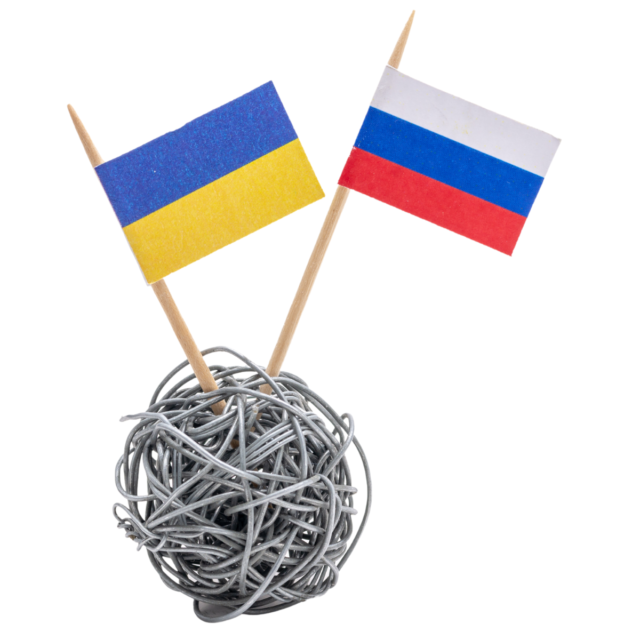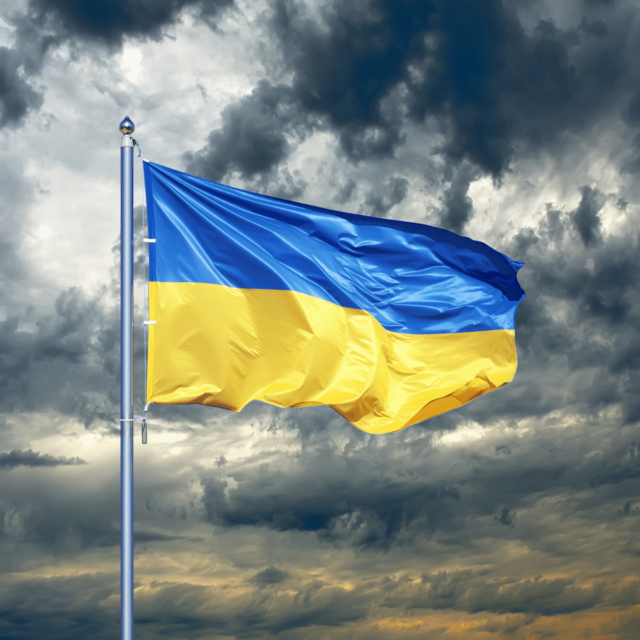What we did
By using our global econometric model (NiGEM), we could quickly assess the likely impact and understand the range of potential scenarios. A policy report with these findings was released within the first week (2 March), and a webinar scheduled for 3 March. A follow-up blog was published on 7 March.
What we found
Primarily, we estimated that the conflict in Ukraine could reduce the level of global GDP by 1 per cent by 2023 (approximately a US$1 trillion reduction) and add up to 3 percentage points to global inflation in 2022 and a further 2 percentage points in 2023.
We highlighted that Europe would be the region affected most, given trade links and reliance on Russian energy and food supplies, with higher public spending to support a massive inflow of asylum-seekers from Ukraine and to bolster military spending.
For Russia’s economy, we estimated that inflation would soar above 20 per cent this year and, although the sanctions costs would be partly offset by higher prices for oil and gas exports, Russian GDP would be expected to contract by 1.5 per cent this year and more than 2.5 per cent by the end of 2023.
What happened next
Our policy report received widespread media coverage with a dedicated piece appearing on Bloomberg (and reposted by a multitude of foreign outlets) and the analysis mentioned in all the major broadsheet newspapers. Separately we were quoted in pieces by The Financial Times, The New Statesman, The Independent and The Times. The publication, and subsequent webinar, also prompted an invitation to give evidence before the Treasury Select Committee on this topic and drove wider engagement with specialist briefings to government departments . In April, we convened a special session for the Royal Economic Society annual conference, with the papers being subsequently published in The World Economy.




